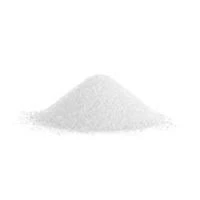
acidity regulator e331
Understanding E331 The Role of Sodium Citrate as an Acidity Regulator
In the world of food additives, E331, also known as sodium citrate, is a compound that often flies under the radar. Yet, it plays an essential role in food technology and nutrition. As an acidity regulator, it helps maintain the desired pH levels in various food products, ensuring both quality and safety for consumers. This article explores the properties, uses, and benefits of sodium citrate, providing a comprehensive overview of its importance in the food industry.
What is E331?
E331 is the European food additive number assigned to sodium citrate. This compound is derived from citric acid, a natural fruit acid that is abundant in citrus fruits. When citric acid is neutralized with sodium hydroxide or sodium carbonate, sodium citrate is formed. The resulting product is a white, crystalline powder that is highly soluble in water.
Sodium citrate is classified as a GRAS (Generally Recognized As Safe) substance by the U.S. Food and Drug Administration (FDA), meaning that it is considered safe for consumption based on a long history of use in food. It is widely accepted in food processing and is used in various products ranging from beverages to processed foods.
Role as an Acidity Regulator
The primary function of E331 in food is as an acidity regulator. Acidity regulators help to control the pH level of food products, which is essential for several reasons
1. Flavor Enhancement The pH of a food product significantly affects its taste and flavor profile. By adjusting the acidity, sodium citrate can enhance the overall flavor, providing a balanced experience for consumers.
2. Preservation Maintaining a stable pH is critical for food preservation. Certain microorganisms thrive in specific pH ranges. By lowering or stabilizing the pH, sodium citrate can inhibit the growth of spoilage organisms and pathogens, extending the shelf life of food products.
acidity regulator e331

3. Texture and Stability In various processed foods, acidity can influence texture. Sodium citrate can act as a stabilizing agent, improving the texture of products such as cheese and sauces. For example, in cheese production, it helps to keep fats emulsified and prevents curd separation, resulting in a smoother consistency.
Applications in the Food Industry
Sodium citrate can be found in a variety of food products. Some common applications include
- Beverages E331 is often used in soft drinks and fruit juices to maintain acidity and enhance flavor. - Dairy Products It is frequently used in processed cheeses and cheese sauces, where it helps achieve a creamy texture while preventing separation. - Meat Products Sodium citrate can also be found in cured meats and sausages, where it assists in maintaining product quality and prolonging shelf life. - Baking In baking applications, sodium citrate can act as a leavening agent and contribute to the flavor of baked goods.
Health Benefits and Considerations
Sodium citrate is also recognized for its potential health benefits. It can assist in the management of kidney stones by increasing urinary citrate levels, which helps inhibit stone formation. Additionally, its alkalizing properties can support metabolic health by helping to balance the body’s pH levels.
However, while sodium citrate is safe for most individuals, those with specific health conditions, such as kidney disease or sodium-sensitive hypertension, should consult a healthcare professional before consuming products containing this additive.
Conclusion
Sodium citrate, or E331, is a versatile acidity regulator with significant importance in the food industry. From enhancing flavor and preserving freshness to improving texture and stability, its applications are numerous and varied. As consumers become more conscious of food additives, understanding the role and safety of substances like sodium citrate can empower them to make informed choices about their food. Whether in a fizzy drink or a creamy cheese sauce, E331 quietly ensures that our food remains enjoyable and safe.
-
Aluminum Hydroxide: Quality Gels & Dried Gel AntacidNewsAug.31,2025
-
Buy High-Quality Trichloroisocyanuric Acid for Sale | TCCA 90% SupplierNewsAug.30,2025
-
Pure Sodium Dichloroisocyanurate Dihydrate | Powerful DisinfectantNewsAug.29,2025
-
Industrial Chemicals: Quality & Purity for Every IndustryNewsAug.28,2025
-
Nitrile Rubber Honoring Strict Production StandardsNewsAug.22,2025
-
Aspartame Ingredients Honoring Food Safety ValuesNewsAug.22,2025
-
Fertilizer for Balanced Plant NutritionNewsAug.22,2025
Hebei Tenger Chemical Technology Co., Ltd. focuses on the chemical industry and is committed to the export service of chemical raw materials.
-

view more DiethanolisopropanolamineIn the ever-growing field of chemical solutions, diethanolisopropanolamine (DEIPA) stands out as a versatile and important compound. Due to its unique chemical structure and properties, DEIPA is of interest to various industries including construction, personal care, and agriculture. -

view more TriisopropanolamineTriisopropanolamine (TIPA) alkanol amine substance, is a kind of alcohol amine compound with amino and alcohol hydroxyl, and because of its molecules contains both amino and hydroxyl. -

view more Tetramethyl Thiuram DisulfideTetramethyl thiuram disulfide, also known as TMTD, is a white to light-yellow powder with a distinct sulfur-like odor. It is soluble in organic solvents such as benzene, acetone, and ethyl acetate, making it highly versatile for use in different formulations. TMTD is known for its excellent vulcanization acceleration properties, which makes it a key ingredient in the production of rubber products. Additionally, it acts as an effective fungicide and bactericide, making it valuable in agricultural applications. Its high purity and stability ensure consistent performance, making it a preferred choice for manufacturers across various industries.





